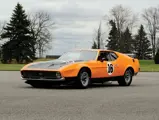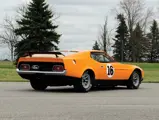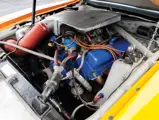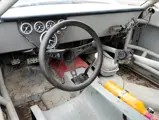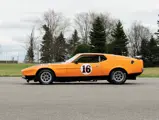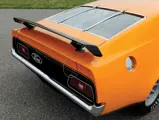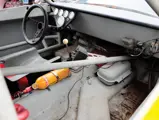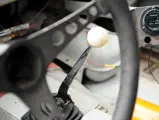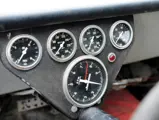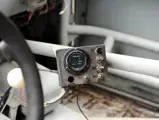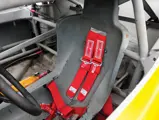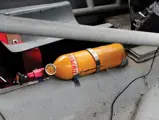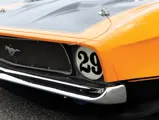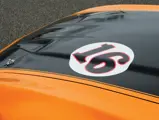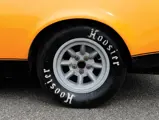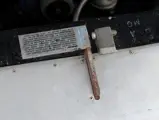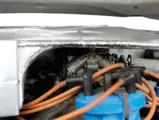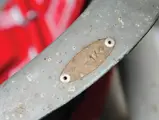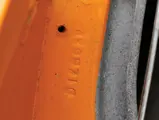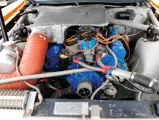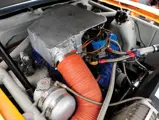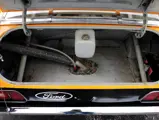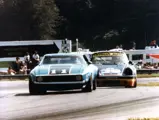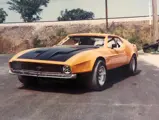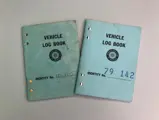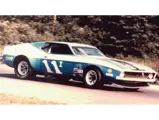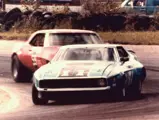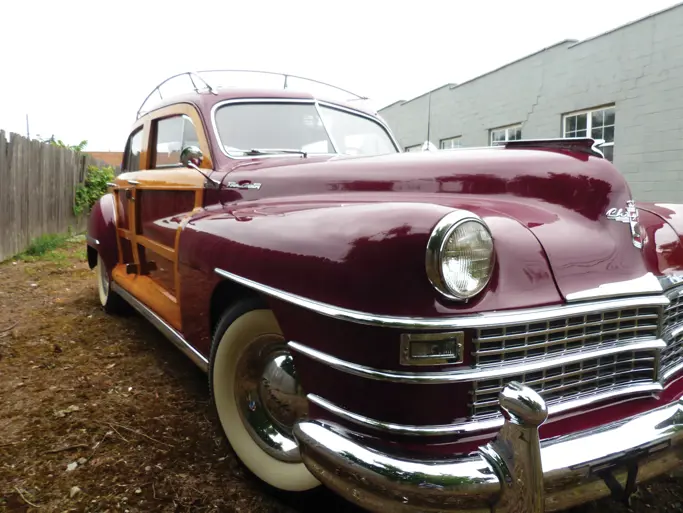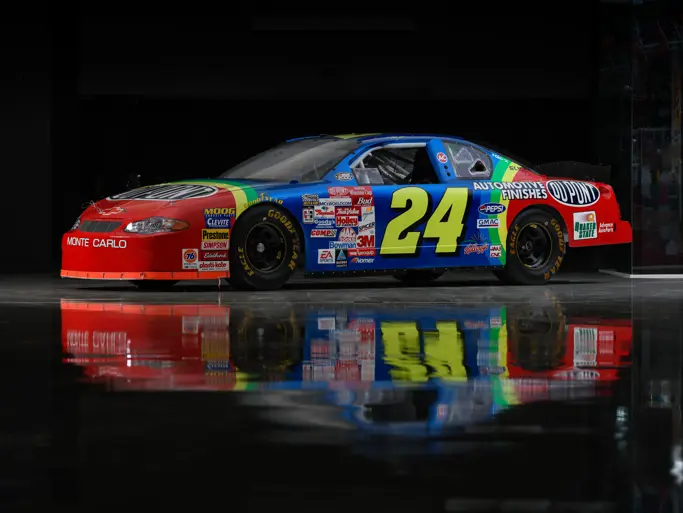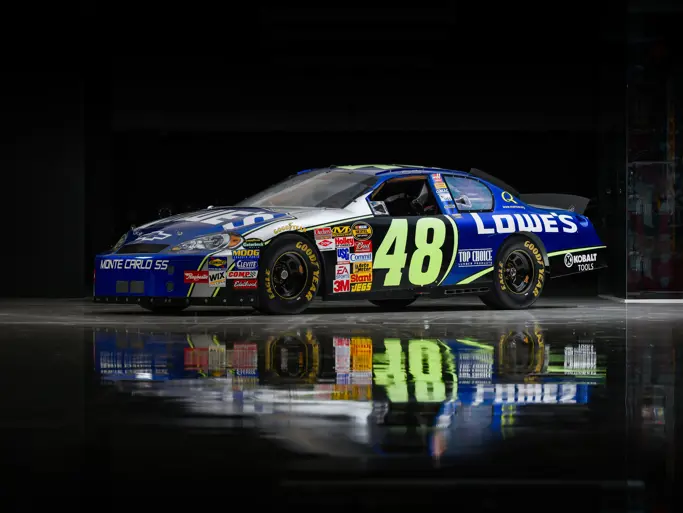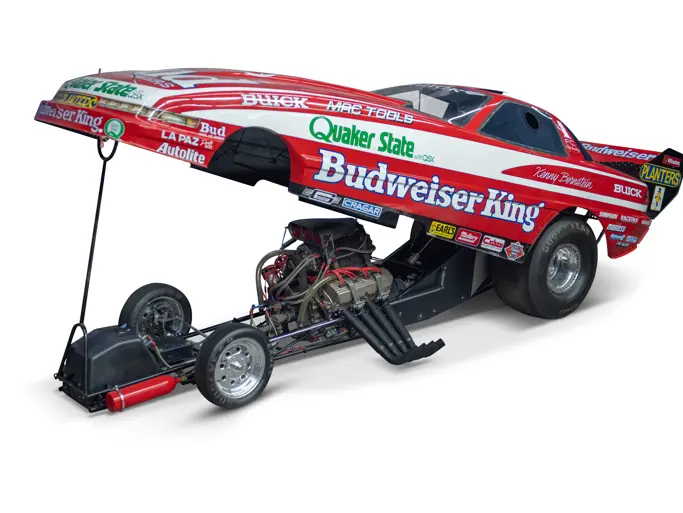Auburn Spring 2019
1973 Ford Mustang Trans Am
{{lr.item.text}}
$49,500 USD | Sold
 | Auburn, Indiana
| Auburn, Indiana
{{internetCurrentBid}}
{{internetTimeLeft}}

- Highly modified 351 cu. in. V-8 built by Jack Roush
- Close-ratio, four-speed with Hurst shifter; 4.11:1 locked rear end
- Originally sold unfinished to Ed Hinchliff, who assembled the car utilizing Kar Kraft blue prints with the help of former Kar Kraft chassis engineers Lee Dykstra and Mitch Marchi
- Campaigned in-period; accompanied by SCCA log books
Please also note this car is accompanied by three pallets of parts.
Lastly, this lot is offered on a Bill of Sale only.
Launched as the Trans-American Sedan Championship, the racing series was the Sports Car Club of America’s first attempt at a manufacturers’ championship formula for modified sedans and coupes. Over time, it has evolved into a drivers’ and manufacturers’ series for GT-style cars. Known simply as “Trans Am,” the series has been run on a variety of courses, from street and airport circuits, to temporary road courses and permanent race tracks.
The “Golden Age” of Trans Am is considered 1968 to 1972, when Penske’s Camaros, Mark Donhue’s AMC Javelin, and Parnelli Jones’ Boss 302 Mustang went wheel-to-wheel in contesting the championship. From 1973 to 1980, the formula evolved into what some have called a “clone of the IMSA GT Championship,” with modified cars, albeit with a conventional focus. By 1980, because of an SCCA handicapping formula, 2,600-lb., 5-liter cars dominated the field. Soon, the stock idiom had blown to the winds, and Trans Am had become a “silhouette series” with tube-frame cars exhibiting only a resemblance to the cars they were emulating.
This Mustang is one of two ‘body-in-white’ cars delivered to Warren Tope's shop near the end of 1972. Warren's father was a Vice President at Ford and with his pull was able to special order the cars, one for Warren and one of his good friend Ed Hinchliff. While Warren's car was quickly assembled by Tope Racing and immediately pushed to the track, the car offered here was slowly assembled by Ed Hinchliff of Hinchliff Racing, with Ed utilizing factory parts and Kar Kraft blueprints and the help of former Kar Kraft chassis engineers Lee Dykstra and Mitch Marchi in the construction.
Some of the features originally incorporated on this car were Girling four-piston aluminum brakes with large rotors, first developed by Penske Racing for their Trans Am Javelins; a factory Kar Kraft full floater rear axle with locker; a Ram Air intake system with a Holly NASCAR intake manifold; and a Jones tachometer.
According to SCCA log books included with the car, it was campaigned under two numbers. In October 1976, the car was registered under SCCA Identity No. 10-505 in the SCCA A Sedan Category. During this time the car was campaigned in a Ford blue and white livery. The log book contains a number of entries from the 1970s and early 1980s. In February 1979, the car was registered under SCCA Identity No. 79-142 in the SCCA Trans Am Category I. The log book carries two race entries from 1980, during which time it donned the Ford blue and white livery. The hood of this livery is included in the sale of the car.
In the late-1980s, owner George Boyd had the Mustang repainted in the colors he felt the car would have campaigned in had Kar Kraft completed their modifications. It was refinished in school bus yellow with a black hood, rockers, and spoiler; the livery the car retains today.
Included with this Mustang are blueprints of chassis components, documents from Ed Hinchliff when he was building the car and racing the car in period, and most importantly, the racing log books associated with the car’s SCCA tag. Although the car would require inspection and proper race preparation prior to track use, this period Trans Am Mustang, with its wide track, excellent aerodynamics, stiff chassis, and heavily upgraded powertrain, would be a force to be reckoned with in vintage racing even today.
| SCCA NO. 10-505 - RACE RESULTS | ||||
|---|---|---|---|---|
| DATE | EVENT | RACE # | DRIVER | RESULT |
| October 30th, 1976 | Nelson Ledges Great Pumpkin | Ed Hinchliff | N/A | |
| June 26th, 1977 | Nelson Ledges Trans-Am | 11 | Ed Hinchliff | 17th OA |
| September 3rd, 1977 | Road America | 11 | Ed Hinchliff | 32nd OA |
| September 4th, 1977 | Road America | 11 | Ed Hinchliff | 27th OA |
| September 11th, 1977 | Mont-Tremblant Molson Trans Am | 11 | Ed Hinchliff | DNF |
| July 7th, 1979 | Wakins Glen | 25 | Ed Hinchliff | 16th OA |
| SCCA NO. 79 -142 - RACE RESULTS | ||||
| DATE | EVENT | RACE # | DRIVER | RESULT |
| May 30th, 1980 | Hallet Trans-Am | 29 | Ed Hinchliff | 16th OA |
| July 17th, 1980 | Road America Trans-Am | 29 | Ed Hinchliff | DNS |
| August 23rd, 1980 | Trois-Rivières Trans-Am | 29 | Ed Hinchliff | 11th OA |

